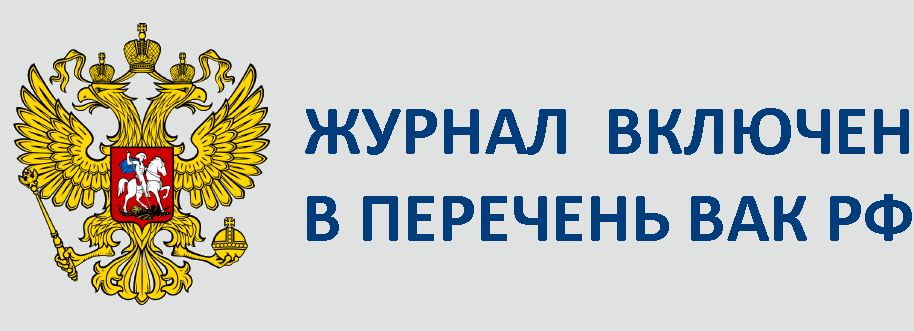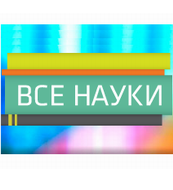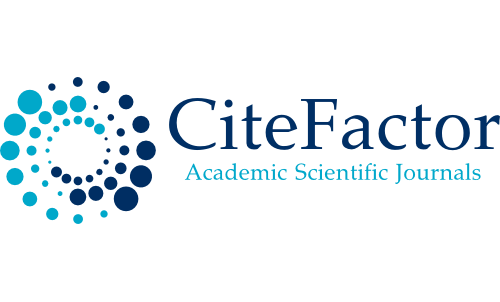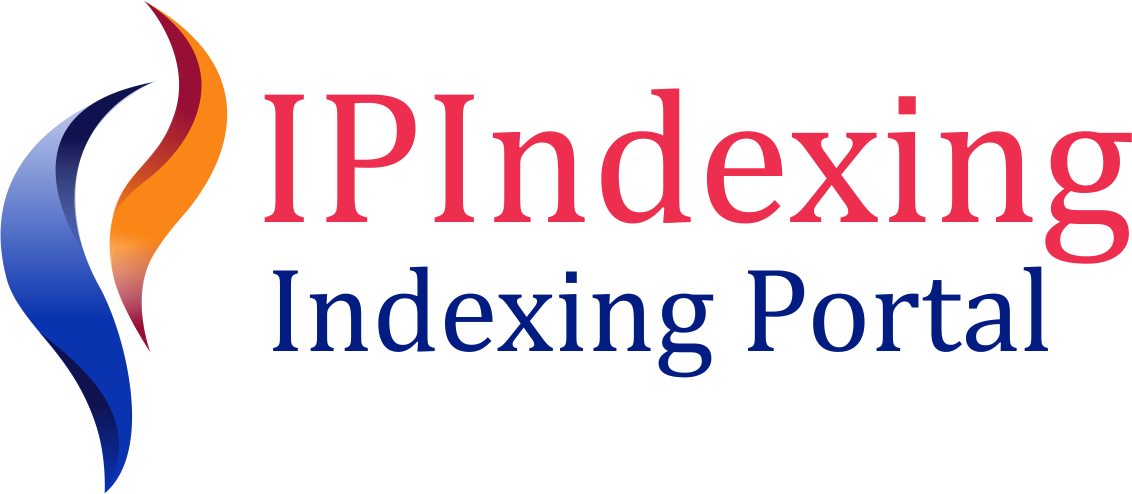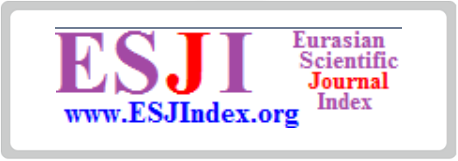Ethical Publication Policy
Journal Editors` and editorial board` Publication Ethics Policy
Ethical publication policy pursued by the editorial board of the on-line journal «Nauchno-tekhnicheskiy vestnik Bryanskogo gosudarstvennogo universiteta» («Scientific and Technical Journal of Bryansk State University») meets the criteria of the scholarly community and framework of publication ethics that implies honesty, confidentiality, oversight of publications, resolving conflicts of interest etc. and is stated in the guidelines by the Committee on Publication Ethics (COPE) as well as leading Russian and foreign peer-reviewed journals and publishing houses.
Ethical publication guidance for authors
When submitting papers for publication in the «Nauchno-tekhnicheskiy vestnik Bryanskogo gosudarstvennogo universiteta» individual authors (or a collective of authors) are required to:
• demonstrate the significance of his/her (in case of more than one author – their) research, its practical implications, soundness of research findings and developed products;
• report reliable research findings where any resulting images (X-ray shots, photographs, script shots etc.) should not be edited or altered in any way;
• provide substantial information for peer-review and replication of results by other researchers;
• avoid fabrication and falsification of research findings and deliberate publication of erroneous or false materials;
• warrant that the article submitted for publication is an original work and that any abstracts, arguments, conclusions etc. presented in the research paper include reference to the primary data source;
• consider excessive use of borrowed material, any form of plagiarism including improperly documented quotations, paraphrases or copyright infringement unacceptable;
avoid unnecessary fragmentation of the research into several manuscripts;
• acknowledge contributions of organisations and individuals associated with research and describe their role at every stage of the work;
• abide by ethical principles when reviewing and interpreting research conducted by other authors;
• enter only those individuals into the co-authors list who have made essential contribution into research, excluding those not involved;
• use information obtained privately from the third party only if they have explicitly agreed to it or signed a consent form;
• consider it unacceptable to duplicate publications in several journals or publishing companies and cite a primary source when content from other publication has been reproduced;
• avoid submitting manuscripts that have already been published elsewhere;
• inform editors as soon as errors or inaccuracies have been detected regardless whether the paper is still under consideration, has been accepted or has already been published;
• be able to prove credibility of the original manuscript or correct mistakes and inaccuracies detected by reviewers or reported by the third party;
conform to formatting requirements established by the editorial board and explained on the journal website;
• treat the work of editorial board members, editorial staff and reviewers decently, cooperate in eliminating errors or provide well-based arguments to support your case.
Ethical publication guidance for editorial board members and editorial staff
Editorial board members and editorial staff are required to conform to the following principles and procedures in publishing:
• comply with publication ethics norms adopted by the journal and stated in the present document;
• reject papers containing plagiarism and inaccurate data;
• refer to the reproduced material without the reference to the primary source as plagiarism;
• reject manuscripts that undergone unnecessary deliberate fragmentation with the aim of submitting them as several autonomous manuscripts;
• be aware that abstracts or pre-prints for academic events do not interfere with submitting the corresponding research for its further publication;
• ensure open access to the article after it has been approved for publication;
• notify authors (research teams) within several days upon acceptance of the manuscript;
• arrange for competent, honest and prompt review of submitted manuscripts;
• post on-line the information provided by the author about research funding;
• keep the information confidential until the publication if requested by the author;
• ensure there are no semantic, grammatical, stylistic or any other mistakes upon acceptance of the article;
• discuss corrections suggested by the editors with the author;
• bear in mind that reviews on the submitted manuscript are confidential and the disclosure of their content as well as reviewers` names to the third party is unacceptable;
• request an inquiry into the breach of ethical publication policies (regardless whether manuscripts are published or not) by an editor, author or reviewer where they are required to provide explanations;
• store the evidence related to the breach of publication ethics policy defined in this document for 10 years;
• stand by decisions taken by the previous editorial board to publish the article in case a new editorial board takes over.
Ethical publication guidance for editors-in-chief
Editors-in-chief are required to conform to the following principles and procedures in publishing:
• ensure all members of the editorial staff and editorial board, reviewers and authors abide by publication ethics policy adopted by the journal and stated in the present document;
• make decisions concerning publications in accordance with the following criteria: relevance of the manuscript to the focus of the journal, its significance, originality, theoretical implications, clarity, credibility, comprehensive conclusions;
• support the research which is designed and conducted in accordance with recognized best practice and standards;
• take into account reviewers` opinion when publication decision is being made;
ensure author`s intellectual property ownership, if publication has been approved;
• prevent violation of ethical norms and authorship when commercial issues arise;
• leave it to the author to prove their authorship;
• reject manuscripts containing plagiarism or unreliable data;
• exercise the right to reject the manuscript or ask the author to edit it if format requirements established by the editorial board are violated;
• attend to authors` complaints in a respectful manner if their manuscript has been rejected;
• must not appoint reviewers, rejected by the author, unless his/her arguments are not convincing;
• make sure submitted manuscripts remain confidential until they are published;
• attend to claims concerning publications if any ethical issues arise;
• liaise with other editors and publishers on publication ethics;
• be prepared to publish corrections, clarifications, rebuttals, apologies in case of breach of publication ethics;
• take measures to avoid conflicts of interest between authors, reviewers, members of the editorial board or editorial staff related to commercial issues, work or personal relationships that could affect their judgment;
• launch an inquiry into each breach of publication ethics (regardless whether the manuscript has been published or not) by authors, reviewers, members of the editorial • board or editorial staff where they are required to provide explanations;
• address all claims concerning submitted manuscripts, published articles and take immediate action in case the authorship is violated;
• make sure the submitted manuscripts remain confidential and any information concerning them including reviewers` names may not be disclosed to the third party;
ensure that their personal data is safe;
• be aware that the journal is not a commercial enterprise, cannot be used for profit, whereas business or politics must not interfere in decision-making process;
meet publications deadline;
• be committed to achieving higher standards of efficiency in publishing practice, provide unbiased, reliable up-to-date information for readers and authors.
Ethical publication guidance for peer-reviewers
When reviewing articles submitted for publication peer-reviewers are required to conform to the following ethical principles and practice:
• assess research regardless of author`s race, gender, sexual orientation, religious beliefs, background, nationality, status or political views;
• keep peer review process confidential and do not disclose it to the third party;
• keep any information about the manuscript confidential: it can`t be shared with the third party for reading or discussion without explicit permission from the editors;
treat the submitted manuscript as intellectual property;
• report to the editors about any inaccuracies, falsifications, illicit borrowing, lack of reference to primary sources and call to the journal editor`s attention any • • significant similarity between the manuscript under consideration and any published paper as well as other forms of plagiarism;
• give unbiased, objective and well-reasoned evaluation of the manuscript and be able to explain his/her judgment;
• give informed recommendations on how the paper under consideration can be upgraded;
• avoid personal criticism of the author;
• consider it unacceptable to copy the manuscript or parts of it for further use in their own work;
• avoid using any information obtained during the review and use it in his or her interests before the manuscript is published;
• decline to review the manuscript if he/she feels technically unqualified;
• decline to review the manuscript if he/she feels unable to review it objectively because the reviewer has conflicts of interest with the author or the organization the author represents;
• keep the review analysis confidential and avoid disclosing it or parts of it to the third party.
Publication ethics guidelines in addressing conflicts of interest
To avoid conflicts of interest between authors, reviewers, members of the editorial board or editorial staff related to commercial issues, work or personal relationships that could affect their actions or judgment each party should act in line with publication ethics policy adopted by the journal.
• IECs (the deputy editor or appointed secretary of the editorial board as instructed) should pass the manuscript to another reviewer if the previously appointed reviewer has conflicts of interest with the author (collective of authors) or the organization the author represents;
• inquire the information concerning potential conflicts of interest from authors, reviewers, members of the editorial board or editorial staff;
• make information concerning conflicts of interest related to the article under consideration public if this information is not confidential and may affect the evaluation of the published article by readers and scholarly community;
• timely publish corrections and clarifications if the information about the conflict of interest was obtained after the article had been published.
Authors (team of authors) are required to state their institutional affiliation and sources of their research funding related to the submitted manuscript.
Reviewers are required to report the conflict of interest to the editor and decline to review the manuscript.
The commitment to the above-mentioned publication ethics guidelines of all parties to the publication process (authors, reviewers, members of the editorial board editorial staff and editor-in-chief) would ensure the author`s intellectual property rights, better publication standards, promote research findings across audiences and eliminate the breach of authorship by the third party.




